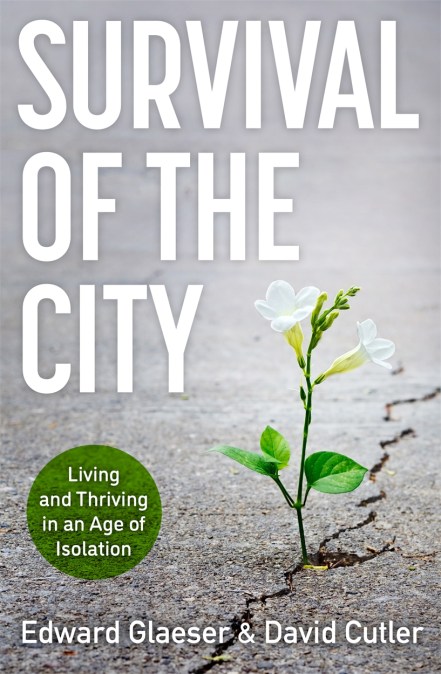Survival of the City
On sale
2nd September 2021
Price: £20
From New York to New Delhi, COVID-19 has had a devastating impact on our urban world, turning the physical proximity which is central to the creative energy of the city into a potentially deadly threat to our health and well being. Yet most of us live or work in cities. They are a vital part of both local and global economies and shape the lives we lead and our interactions with others. How can we adjust to this new reality and what lessons can we learn from the past?
In this urgently relevant book, leading experts Edward Glaeser and David Cutler, examine the history and future of the global city. They argue the biggest threats are those we have created ourselves – inequalities in housing, health, work and education – and that we need to address these as a matter of urgency if our cities are to continue to thrive and drive economic growth and prosperity. They conclude by proposing some practical measures that governments and citizens need to act on to ensure the survival of the city around the world.
.
In this urgently relevant book, leading experts Edward Glaeser and David Cutler, examine the history and future of the global city. They argue the biggest threats are those we have created ourselves – inequalities in housing, health, work and education – and that we need to address these as a matter of urgency if our cities are to continue to thrive and drive economic growth and prosperity. They conclude by proposing some practical measures that governments and citizens need to act on to ensure the survival of the city around the world.
.
Newsletter Signup
By clicking ‘Sign Up,’ I acknowledge that I have read and agree to Hachette Book Group’s Privacy Policy and Terms of Use
Reviews
Survival of the City is a work of stunning brilliance. I learned something on every page, and these are topics I thought I understood. This book is a must read for anyone who hopes to talk intelligently about a postCOVID world.
This fascinating book is about everything- the plague, COVID-19, obesity, robots, schools, and more-all seen through the lens of the city, its past and future. It's a gripping read for anyone, but especially those who are wondering just what is the place of the city in their post-pandemic lives.
Over the past three decades, David Cutler has done pathbreaking work on the determinants of health, while Ed Glaeser has done pathbreaking work on cities and economic growth. Now they've teamed up to write a book that focuses on the intersection between these two areas: how cities shape our health and livelihoods amidst a global pandemic. A fascinating read that helps us understand how we got to where we are today and design policies to build healthier, opportunity-rich cities in the future, Survival of the City will be a terrific resource for the public and policymakers for years to come.
This is a must read for anyone interested in the health of cities and their residents. Glaeser and Cutler sift through the evidence to offer an incisive, engaging analysis of the real challenges posed by pandemics and other threats to urban life. Their clear and balanced policy prescriptions will protect cities from long COVID and help them emerge from the pandemic as resilient and vital as ever.
Survival of the City is a smart and surprising account of how the modern metropolis can bounce back from the current crisis, and a compelling argument for sweeping policy change. The authors-one liberal, one conservative-are not ideologically aligned, but their differences yield fresh ideas and bursts of insight. I found myself learning from, arguing with, and thoroughly enjoying every part of this totally necessary book.
In this readable yet rigorous book, two brilliant economists tackle the question of our time: How can the people and places whose energies drive our economy thrive in a postCOVID world? Their answer: put health improvement above medical care, striving outsiders before privileged insiders, and cities at the heart of a revitalized American dream.
In their new book, Survival of the City, Harvard economics professors Ed Glaeser and David Cutler write that "the ability of cities to enable the joys of human interactions and shared experiences may be their greatest protection against urban exodus"

